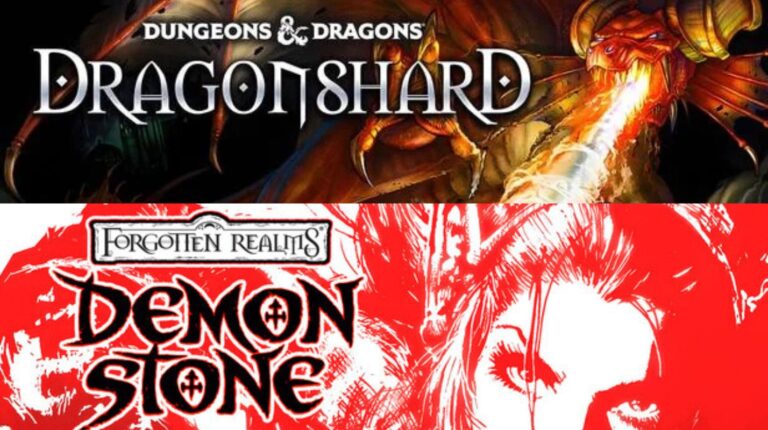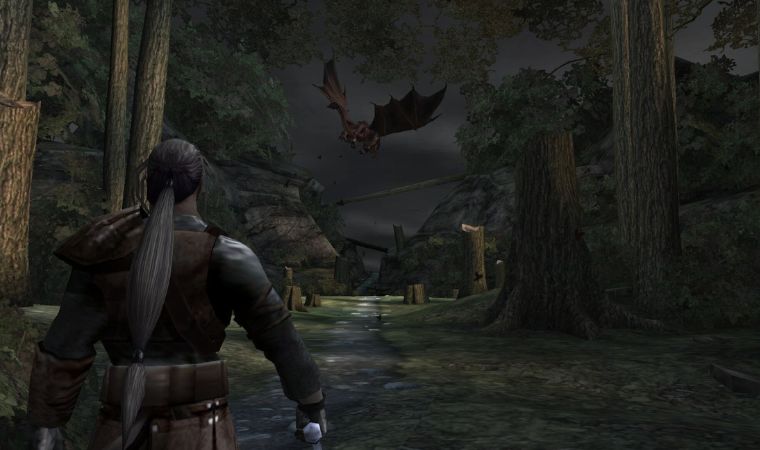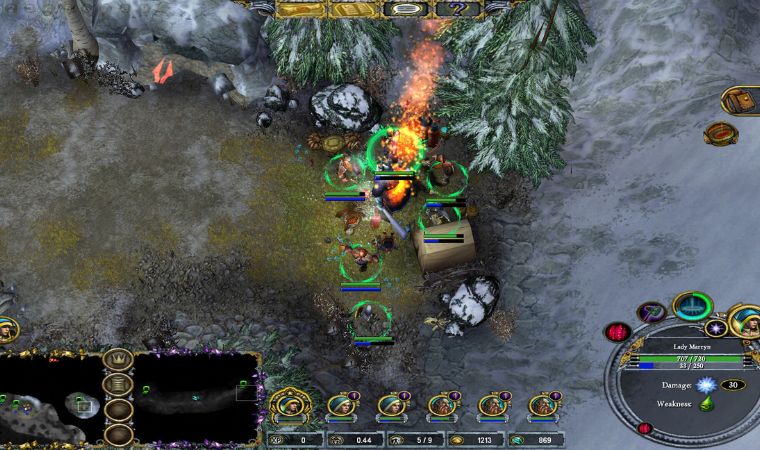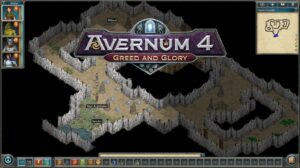Dungeons & Dragons Classics Demon Stone And Dragonshard Return to PC This August


Two long-lost adventures from the golden era of licensed D&D games are returning to modern PCs. Forgotten Realms: Demon Stone and Dungeons & Dragons: Dragonshard will be re-released in mid-August 2025, publisher SNEG Ltd. has announced.
Originally released in 2004 and 2005, these two genre-defining titles bring back the distinct flavor of their era: one a party-driven action-RPG, the other an RTS hybrid that pushed the boundaries of strategy design.
“Each game offers a distinct fantasy adventure experience, ranging from Demon Stone’s action-RPG full-party battles to Dragonshard’s RTS strategy and dungeon exploration. Whether you prefer fast-paced combat, dungeon delving, or tactical overland warfare, there’s something here to satisfy your exploration and adventuring needs,” SNEG said in a press release.
SNEG, a boutique publisher known for reviving forgotten classics, will also support the re-releases with a suite of quality-of-life improvements tailored for contemporary systems.
Jump to:
Demon Stone And Dragonshard Showcase Two Sides of D&D
Though both based on Dungeons & Dragons, the two games represent completely different genres and campaign settings. Forgotten Realms: Demon Stone takes players through a high-fantasy action adventure featuring cinematic combat and a narrative penned by R.A. Salvatore.
Players control a trio of characters – a Fighter, Sorcerer, and Rogue – switching between them in real time to tackle intense combat scenarios and puzzles across the Realms. Demon Stone includes voice performances by Patrick Stewart and Michael Clarke Duncan, and it features creatures like Slaadi and Yuan-ti.

Meanwhile, Dragonshard is rooted in the world of Eberron and delivers a hybrid experience, combining real-time strategy warfare with RPG-style dungeon exploration. Players manage surface battles while dispatching hero-led parties below ground to secure upgrades and items.
Modern Updates Breathe New Life Into Each Title
Forgotten Realms: Demon Stone arrives with several technical improvements, including widescreen scaling, borderless and windowed display modes, and updated audio options. It also supports full XInput controller input with rumble, hot-plugging, and in-game rebindable settings.
Demon Stone’s story follows three unlikely heroes exiled from their homelands. They must work together to prevent the return of powerful demon generals. The game’s combat system includes pick-up-and-play mechanics with stealth, ranged magic, and melee combo chains.
Dragonshard, originally developed by Liquid Entertainment, comes with smoother physics, improved timer performance, ASLR compatibility, and support for modern resolutions. Profiles and save systems are also updated for better localization support.
A Closer Look at Dragonshard’s Unique Hybrid Gameplay
Dragonshard is notable for its dual-layered mechanics, where players conduct real-time strategy warfare on the surface and engage in RPG-style dungeon crawling beneath. Experience points gained below enhance unit performance above.
The game features three warring factions, each with unique units and storylines. These armies range from powerful champions and heroic captains to trainable henchmen and battlefield juggernauts. Players must use tactics, unit positioning, and the Nexus System – a village-building mechanic – to control the Heart of Siberys.

Set in Eberron and written in part by campaign creator Keith Baker, Dragonshard was the first officially licensed RTS in the Dungeons & Dragons universe. It remains the only game to intertwine D&D mechanics with RTS structure at this scale.
Comparing Demon Stone And Dragonshard to Their Genre Peers
Demon Stone follows in the footsteps of other mid-2000s licensed action-RPGs like The Lord of the Rings: The Two Towers and Baldur’s Gate: Dark Alliance. Unlike the isometric perspective of Dark Alliance, Demon Stone opts for a cinematic third-person view and a party-switching system that encourages experimentation in combat.
Dragonshard, on the other hand, shares more DNA with games like Warcraft III and SpellForce, blending RTS with RPG elements. Its dual-layer gameplay predates similar designs in games like They Are Billions and Warhammer 40,000: Dawn of War II.
Both titles stood out at the time for their ambition. Demon Stone offered high production values rarely seen in action RPGs of its kind, while Dragonshard took genre risks that few strategy titles dared to explore.
Humble Bundle Collection Delivers More Classic D&D
In addition to the upcoming Steam releases, SNEG has launched a massive Pay What You Want Humble Bundle featuring a treasure trove of older Dungeons & Dragons PC games. While Demon Stone and Dragonshard are not part of the bundle, several Gold Box and Silver Box titles are included.
Among the highlights are Pool of Radiance, Curse of the Azure Bonds, Champions of Krynn, and Spelljammer: Pirates of Realmspace. The bundle also includes rarities like Heroes of the Lance, Shadow Sorcerer, and the full Dark Sun RPG series.
This collection, like the re-releases, is part of SNEG’s mission to preserve and make accessible PC classics that would otherwise be lost to time and incompatible hardware.
SNEG And Hasbro Continue Their Legacy Preservation Work
SNEG, Ltd. has positioned itself as a key partner in the preservation of PC gaming history. By licensing, updating, and republishing legacy titles from franchises like Dungeons & Dragons, Warlords, and Ravenloft, the company has carved out a niche as a trusted steward of game history.
Hasbro, the parent rights-holder to the Dungeons & Dragons franchise, continues to license its properties through strategic partnerships. Its current focus spans both physical and digital games, reaching hundreds of millions globally through its franchise-first model.
Together, SNEG and Hasbro are opening a portal for modern players to experience adventures that defined a generation – and making sure the dice never stop rolling.

















